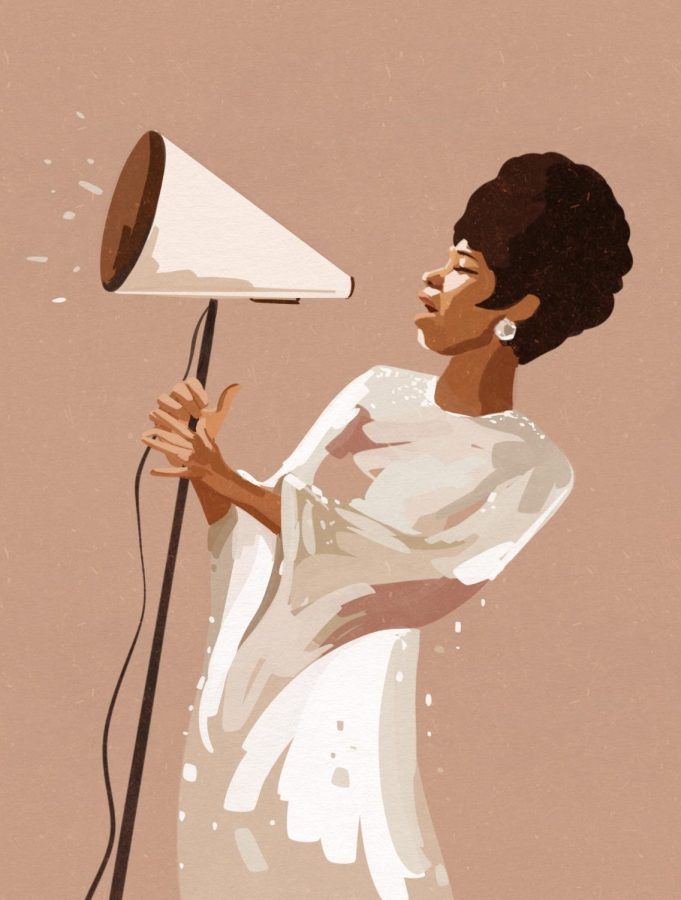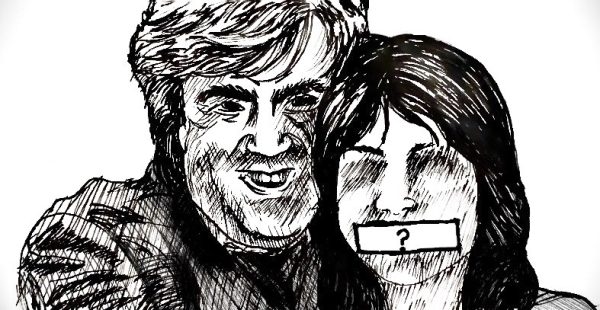The FBI’s historical bias against Black activists
What the release of Aretha Franklin’s files says about racism in the federal government
Thanks to the Freedom of Information and Privacy Act (FOIA), individuals have the right to request information about themselves and regulate the government’s recordkeeping and disclosure practices. Records that have been released to the general public can be found online or in the FBI’s FOIA library, also known as “The Vault.” The description given on the site states:
“Included here are many new FBI files that have been released to the public but never added to this website; dozens of records previously posted on our site but removed as requests diminished; files from our previous FOIA Library, and new, previously unreleased files.”
In 2018, Jenn Dize, founder of the investigative journalism startup Courage News, “FOIA’d” files on popular singer-songwriter Aretha Franklin. Four years later, the files were released, and the results were shocking. The files, titled “Aretha Franklin 01,” contain 270 pages of documentation following Franklin’s involvement in the civil rights movement.
Upon receiving the documents, Dize stated in a Twitter thread, “While incomplete, the [files] show repeated and disgusting suspicion of the famed Black singer, her work and activists around her. … There were frequent attempts to connect Aretha Franklin & other notable Black figures to anything they deemed nefarious.”
Among said notable Black figures are Roberta Flack, Tina Turner, Michael Jackson, Sammy Davis Jr. and Sidney Poitier. The FBI kept constant tabs on these individuals, monitoring any and all events they would speak or perform at, all for the same reason — fear.
In preparation for the memorial service of Martin Luther King Jr. (with whom Franklin was close friends), the FBI, referring to it as a “racial situation,” stated, “Sammy Davis Jr.; Aretha Franklin; Marlon Brando; Mahalia Jackson and the Supremes [will perform]. Of this group, some have supported militant Black power concept and most have been in forefront of various civil rights movements. … A source [REDACTED] states [Student Nonviolent Coordinating Committee] SNCC members felt the performance by these prominent entertainers would provide emotional spark which could ignite racial disturbance in the area.”
Not only did the documents show the profiling of said prominent figures, but they also contained plenty of racially charged language, describing Franklin as a “noted Negro singer and entertainer.”
Billie Jean King, Elizabeth Taylor and Paul Newman were all also very well-known individuals who remained active in the civil rights movement, but with one notable difference — they were white. Their cases were thus handled much differently by the FBI. King and Newman’s names, when entered into the Vault’s search bar, brought up no results. Elizabeth Taylor’s search brought up one file, “Elizabeth Taylor Part 01 of 01,” the contents of which differed greatly from Franklin’s. The 154 pages contain what seem to be mostly records of death threats against her and investigative reports into said threats. While Franklin’s documents, in more recent times, were similar in that they also tracked death threats, the files include elements clearly rooted in a place of apprehension and racism.
While finding such blatant racism in government documents may not be entirely surprising, it does beg the question of if and when said discrimination has stopped.
In more recent times, we have seen plenty of activism from celebrities in light of the Black Lives Matter movement — are they being surveilled for their involvement? Take, for example, Colin Kaepernick, who lost his job for a symbolic protest in solidarity with the individuals who lost their lives to police brutality. How many pages of files might the FBI have on him, unknown for decades to come? And what about other Black celebrities who are outspoken and active — Rihanna, Lizzo, Alicia Keys, LeBron James, Oprah Winfrey, Shonda Rhimes, Viola Davis, Zendaya, John Legend and Gabrielle Union, to name a few?
This thread of discrimination, fear and hatred does not inspire a feeling of confidence or trust in our government, especially for people of color. While laws such as FOIA do aid in the effort to hold those in power accountable, it seems, at times like these, to be almost “too little, too late.” As progressive as parts of our society may seem today, there are still areas that need improvement, accountability and change, and it may still take many decades more of tireless activism to truly move away from this country’s dark past.

I am a sophomore Communications and French double major from Houston, TX. I began working at the Trinitonian last year, as a copy editor, and am now...

My name is Michaela Bosco. I am a sophomore double majoring in Art and Communications as well as minoring in New Media. In my free time, I enjoy drawing,...











